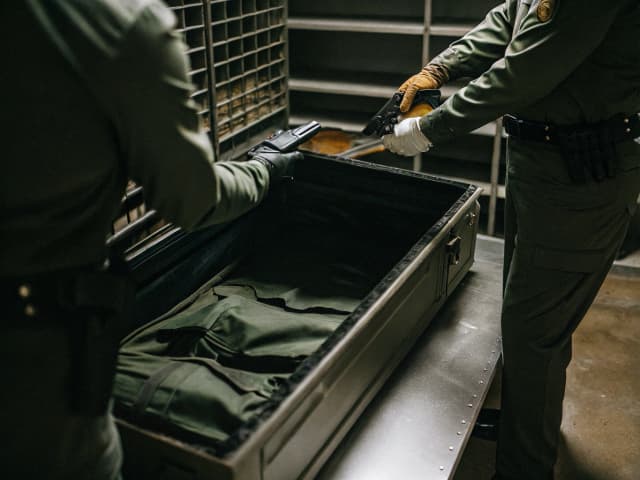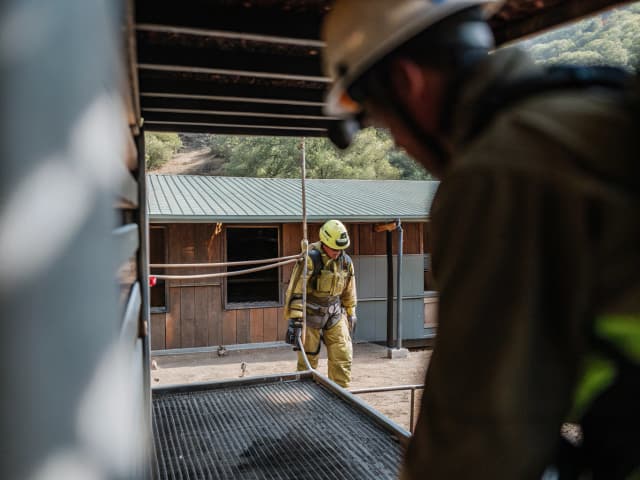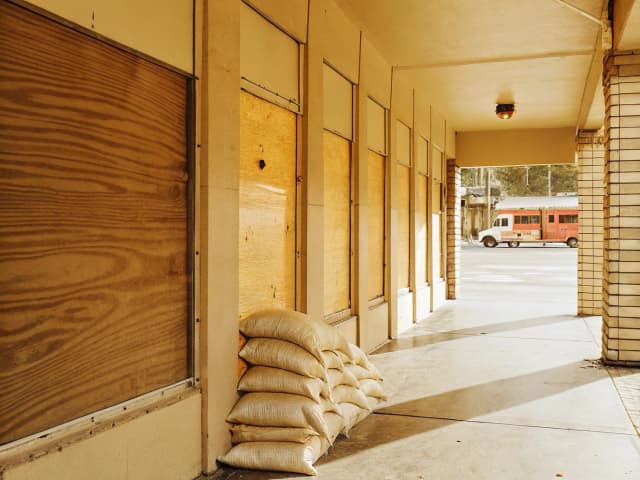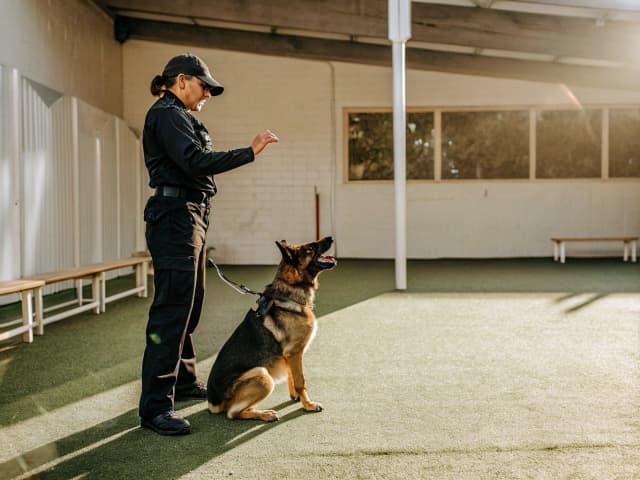Justice & Public Safety

County officers: coroners: in-custody deaths.
Establishes the FACTS Act to require independent determinations of in-custody deaths. Requires annual agreements with independent coroners or private providers by 2027. Shifts authority by prohibiting sheriffs from deciding in-custody deaths and using independents. Requires findings to match and be shared with officials and the decedent's next of kin.
County officers: coroners: in-custody deaths.

Establishes the FACTS Act to require independent determinations of in-custody deaths. Requires annual agreements with independent coroners or private providers by 2027. Shifts authority by prohibiting sheriffs from deciding in-custody deaths and using independents. Requires findings to match and be shared with officials and the decedent's next of kin.

Peace officers: confidentiality of records.
Expands access to confidential peace-officer records for civilian oversight during investigations. Authorizes subpoenas by oversight boards and inspectors general to compel records. Mandates confidentiality with redactions and closed sessions for review. Ties operative provisions to companion bills with sequencing conditions.
Peace officers: confidentiality of records.

Expands access to confidential peace-officer records for civilian oversight during investigations. Authorizes subpoenas by oversight boards and inspectors general to compel records. Mandates confidentiality with redactions and closed sessions for review. Ties operative provisions to companion bills with sequencing conditions.

Firearms: prohibition: minors.
Extends firearm relinquishment rules to minors prohibited from ownership until age 30. Requires courts to order relinquishment and use a designee to transfer or store firearms. Requires updates to the automated firearms system and probation oversight of compliance. Operative date is January 1, 2026 and late filings incur a $100 fine.
Firearms: prohibition: minors.

Extends firearm relinquishment rules to minors prohibited from ownership until age 30. Requires courts to order relinquishment and use a designee to transfer or store firearms. Requires updates to the automated firearms system and probation oversight of compliance. Operative date is January 1, 2026 and late filings incur a $100 fine.

Law enforcement: settlement agreements.
Prohibits settlements that require destroying or concealing misconduct records. Requires agencies to report separations, complaints, and outcomes to the commission. Public records must disclose firearm discharge, deadly force, dishonesty, sexual assault. Operative only if all related bills pass and take effect by 2026.
Law enforcement: settlement agreements.

Prohibits settlements that require destroying or concealing misconduct records. Requires agencies to report separations, complaints, and outcomes to the commission. Public records must disclose firearm discharge, deadly force, dishonesty, sexual assault. Operative only if all related bills pass and take effect by 2026.

Peace officers: confidentiality of records.
Expands public access by releasing key peace officer incident and disciplinary records. Requires courts to consider undercover duties when assessing safety risk of disclosure. Operative only if AB 847 and AB 1388 are enacted with specified sequencing. Sets a 45-day disclosure deadline and outlines redaction rules.
Peace officers: confidentiality of records.

Expands public access by releasing key peace officer incident and disciplinary records. Requires courts to consider undercover duties when assessing safety risk of disclosure. Operative only if AB 847 and AB 1388 are enacted with specified sequencing. Sets a 45-day disclosure deadline and outlines redaction rules.

Firearms: converter pistols.
• Mandates a ban on sale of machinegun-convertible pistols by licensed dealers starting July 2026. • Expands the machinegun definition to include machinegun-convertible pistols with pistol converters. • Imposes three-tier penalties: up to $1,000 first, up to $5,000 second with license actions, and misdemeanor third. • Authorizes DOJ to adopt regulations to implement the penalties and oversee roster testing framework.
Firearms: converter pistols.

• Mandates a ban on sale of machinegun-convertible pistols by licensed dealers starting July 2026. • Expands the machinegun definition to include machinegun-convertible pistols with pistol converters. • Imposes three-tier penalties: up to $1,000 first, up to $5,000 second with license actions, and misdemeanor third. • Authorizes DOJ to adopt regulations to implement the penalties and oversee roster testing framework.

Crimes: burglary tools.
Expands burglary-tools list to cover modern vehicle access devices. Adds definitions for key programming devices, key duplicating devices, and signal extenders. Maintains misdemeanor penalties with the intent-to-burglarize standard. Explicitly states no state reimbursement for local costs.
Crimes: burglary tools.

Expands burglary-tools list to cover modern vehicle access devices. Adds definitions for key programming devices, key duplicating devices, and signal extenders. Maintains misdemeanor penalties with the intent-to-burglarize standard. Explicitly states no state reimbursement for local costs.

Criminal procedure: interrogations.
Establishes a new interrogations chapter for initial interviews with immediate family. Requires agencies to adopt policies by January 1, 2027 for these interviews. Mandates clear identification, status, purpose, and option to have a support person. Prohibits coercion and allows delays or Miranda-like advisements; local reimbursements may apply.
Criminal procedure: interrogations.

Establishes a new interrogations chapter for initial interviews with immediate family. Requires agencies to adopt policies by January 1, 2027 for these interviews. Mandates clear identification, status, purpose, and option to have a support person. Prohibits coercion and allows delays or Miranda-like advisements; local reimbursements may apply.

Criminal procedure: postconviction discovery.
Expands postconviction discovery to include broader materials and jury notes. Broadens the prosecution to include habeas respondent counsel. Mandates color-copy retention for felony files with CDCR incarceration starting 2026. Allows in-camera review to shield jury notes with good cause, costs borne by defendant.
Criminal procedure: postconviction discovery.

Expands postconviction discovery to include broader materials and jury notes. Broadens the prosecution to include habeas respondent counsel. Mandates color-copy retention for felony files with CDCR incarceration starting 2026. Allows in-camera review to shield jury notes with good cause, costs borne by defendant.

Postrelease community supervision.
Establishes expanded postrelease supervision coordination with CalAIM integration. Requires 90-day written and verbal notice of release date to the county probation department. Requires sharing prerelease, postrelease, and enhanced care manager contacts. Requires coordination to determine current county of residence and arrange transport.
Postrelease community supervision.

Establishes expanded postrelease supervision coordination with CalAIM integration. Requires 90-day written and verbal notice of release date to the county probation department. Requires sharing prerelease, postrelease, and enhanced care manager contacts. Requires coordination to determine current county of residence and arrange transport.

Wards: probation.
Limits ward probation to 12 months from the latest disposition, extension possible. Requires a noticed hearing to extend probation on proof by a preponderance of evidence. Removes authority to order a $250 fine or uncompensated work in lieu of restitution. Requires progress reviews at least every six months after extension.
Wards: probation.

Limits ward probation to 12 months from the latest disposition, extension possible. Requires a noticed hearing to extend probation on proof by a preponderance of evidence. Removes authority to order a $250 fine or uncompensated work in lieu of restitution. Requires progress reviews at least every six months after extension.

Prisons: clearances.
Expands eligibility to include legal professionals and attorney support personnel. Renames clearances to annual gate clearance, short-term gate clearance, and statewide gate clearance. Gives the Governor, cabinet, lawmakers, staff, and judges short-term gate access on request. Requires fingerprints for annual and statewide clearances and sets 30-day decisions and 90-day appeals.
Prisons: clearances.

Expands eligibility to include legal professionals and attorney support personnel. Renames clearances to annual gate clearance, short-term gate clearance, and statewide gate clearance. Gives the Governor, cabinet, lawmakers, staff, and judges short-term gate access on request. Requires fingerprints for annual and statewide clearances and sets 30-day decisions and 90-day appeals.

Automated traffic enforcement system programs.
Authorizes automated traffic enforcement for red-light violations by cities and counties. Imposes escalating penalties ($100-$500) and a 60-day warning period before citations. Requires notice, initial review, administrative hearing, and appeal rights. Provides indigent relief with penalty reductions and payment options.
Automated traffic enforcement system programs.

Authorizes automated traffic enforcement for red-light violations by cities and counties. Imposes escalating penalties ($100-$500) and a 60-day warning period before citations. Requires notice, initial review, administrative hearing, and appeal rights. Provides indigent relief with penalty reductions and payment options.

Criminal procedure.
Requires DOC or county to certify program participation to the sentencing court upon release. Eliminates court copy of petitions; shifts to certification flow. Expands relief eligibility and shields EMT/firefighter licensure from arrest history. Imposes 15-day notice to the prosecutor and creates state-mandated local reporting duties.
Criminal procedure.

Requires DOC or county to certify program participation to the sentencing court upon release. Eliminates court copy of petitions; shifts to certification flow. Expands relief eligibility and shields EMT/firefighter licensure from arrest history. Imposes 15-day notice to the prosecutor and creates state-mandated local reporting duties.

Criminal procedure: discrimination.
Expands Racial Justice Act remedies by broadening discovery and relief avenues. Requires appointment of counsel for indigent postconviction RJA claims. Allows pre- and post-judgment remedies including vacatur and remand. Operative provisions depend on SB 734 and AB 1071 enacting after it.
Criminal procedure: discrimination.

Expands Racial Justice Act remedies by broadening discovery and relief avenues. Requires appointment of counsel for indigent postconviction RJA claims. Allows pre- and post-judgment remedies including vacatur and remand. Operative provisions depend on SB 734 and AB 1071 enacting after it.

Ignition interlock devices.
Extends IID regime to 2033 to expand DUI driving restrictions. Implements income-based cost-sharing for IID costs with income verification. Requires IID on all vehicles operated by offenders, with 60-day service and tamper reporting. Enacts a 2033 sunset, reverting to pre-2019 IID framework unless extended.
Ignition interlock devices.

Extends IID regime to 2033 to expand DUI driving restrictions. Implements income-based cost-sharing for IID costs with income verification. Requires IID on all vehicles operated by offenders, with 60-day service and tamper reporting. Enacts a 2033 sunset, reverting to pre-2019 IID framework unless extended.

Sexual assault forensic evidence: testing.
Allows adult survivors to opt out of testing and retain evidence until testing is requested. Provides survivors access to testing status and related information via the SAFE-T portal. Extends retention to 20 years for unsolved cases or until the victim's 40th birthday. Imposes new duties on local agencies to retain non-tested kits, document transfers, and notify survivors.
Sexual assault forensic evidence: testing.

Allows adult survivors to opt out of testing and retain evidence until testing is requested. Provides survivors access to testing status and related information via the SAFE-T portal. Extends retention to 20 years for unsolved cases or until the victim's 40th birthday. Imposes new duties on local agencies to retain non-tested kits, document transfers, and notify survivors.

Accessibility to emergency information and services: evacuations: pets.
Requires cities to add the pet-rescue procedures and optional waivers, subject to incident commander approval. Designates a pet-evacuation information contact and publishes resources online. Imposes a 30-day hold on adoption or euthanasia of evac-pets. Requires pet-location records for transfers and public reunification lists.
Accessibility to emergency information and services: evacuations: pets.

Requires cities to add the pet-rescue procedures and optional waivers, subject to incident commander approval. Designates a pet-evacuation information contact and publishes resources online. Imposes a 30-day hold on adoption or euthanasia of evac-pets. Requires pet-location records for transfers and public reunification lists.

Crimes: rape.
Expands rape definition by removing spousal exception to require incapacity to consent. Requires prosecutors to prove incapacity to consent due to disability or mental disorder. Requires consideration of mitigating measures and voluntary supports in capacity determinations. No reimbursement for local agencies despite expanded crime scope.
Crimes: rape.

Expands rape definition by removing spousal exception to require incapacity to consent. Requires prosecutors to prove incapacity to consent due to disability or mental disorder. Requires consideration of mitigating measures and voluntary supports in capacity determinations. No reimbursement for local agencies despite expanded crime scope.

Attorneys: unlawful solicitations and advertisements.
Establishes private actions to seek damages for false attorney advertising. Requires State Bar certification and minimum standards for lawyer referral services. Tightens ad content rules and disclosure requirements. Expands complaint process with timelines and enforcement options.
Attorneys: unlawful solicitations and advertisements.

Establishes private actions to seek damages for false attorney advertising. Requires State Bar certification and minimum standards for lawyer referral services. Tightens ad content rules and disclosure requirements. Expands complaint process with timelines and enforcement options.

Crimes: looting.
Expands looting to apply within evacuation zones with harsher penalties. Defines evacuation orders and zones, including dwellings damaged in disasters. Operates only if SB 571 passes by Jan 1, 2026. Requires no reimbursement for local agencies.
Crimes: looting.

Expands looting to apply within evacuation zones with harsher penalties. Defines evacuation orders and zones, including dwellings damaged in disasters. Operates only if SB 571 passes by Jan 1, 2026. Requires no reimbursement for local agencies.

Peace officers.
Mandates dual-degree requirements for peace officer employment. Shifts degree program development to the CCC Chancellor’s Office with broad input. Eliminates POST's mandatory criteria adoption and makes POST advisory, with immediate effect. Adds prior experience and character considerations and seeks financial aid for underserved communities.
Peace officers.

Mandates dual-degree requirements for peace officer employment. Shifts degree program development to the CCC Chancellor’s Office with broad input. Eliminates POST's mandatory criteria adoption and makes POST advisory, with immediate effect. Adds prior experience and character considerations and seeks financial aid for underserved communities.

Commission on Peace Officer Standards and Training: police canines.
Requires POST to study and issue recommendations on police canines by 2028. Directs the study to cover patrol use, detection, obedience standards, warnings, and review factors. Repeals the requirement on July 1, 2031. Declares no funding is requested and requires fiscal committee oversight.
Commission on Peace Officer Standards and Training: police canines.

Requires POST to study and issue recommendations on police canines by 2028. Directs the study to cover patrol use, detection, obedience standards, warnings, and review factors. Repeals the requirement on July 1, 2031. Declares no funding is requested and requires fiscal committee oversight.

Protective orders: Wyland’s Law.
Establishes Wyland’s Law for automated access to protective order data. Requires appropriation for the DOJ to build or contract the system. Provides three data points: order receipt, service status, and firearm-violation status. Mandates public disclosure of transmission completion and DOJ order-receipt records.
Protective orders: Wyland’s Law.

Establishes Wyland’s Law for automated access to protective order data. Requires appropriation for the DOJ to build or contract the system. Provides three data points: order receipt, service status, and firearm-violation status. Mandates public disclosure of transmission completion and DOJ order-receipt records.

Firearms: ghost guns.
Cracks down on ghost guns by criminalizing unlawful manufacture and aiding. Defines digital firearm manufacturing code to include CAD/CAM files and 3D data. Creates civil actions with damages and penalties up to $25,000 per violation. Operative only if AB 1127 is enacted by Jan 1, 2026.
Firearms: ghost guns.

Cracks down on ghost guns by criminalizing unlawful manufacture and aiding. Defines digital firearm manufacturing code to include CAD/CAM files and 3D data. Creates civil actions with damages and penalties up to $25,000 per violation. Operative only if AB 1127 is enacted by Jan 1, 2026.